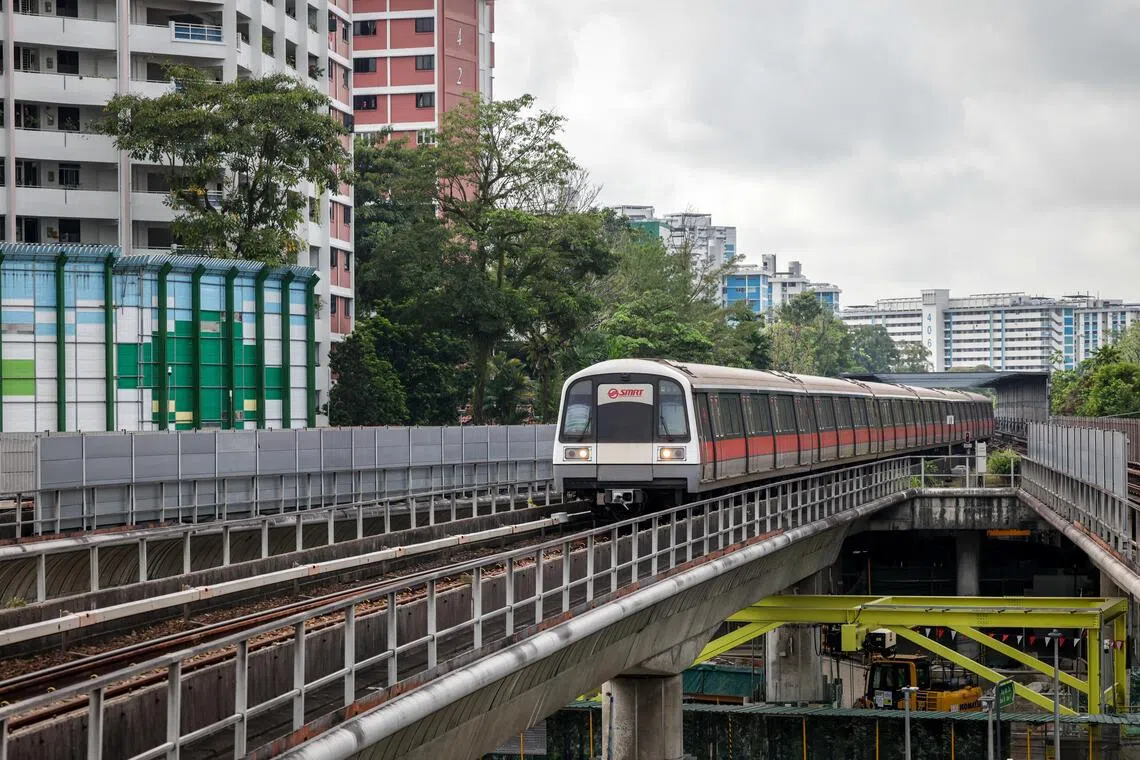Last of Singapore’s first MRT trains retires after over 35 years of service
Sign up now: Get ST's newsletters delivered to your inbox

The first-generation Kawasaki Heavy Industries trains started entering service on Nov 7, 1987.
PHOTO: LIANHE ZAOBAO
Follow topic:
- Singapore phased out all first-generation MRT trains as of Sept 26, following a major disruption in September 2024.
- These trains, refurbished between 2004 to 2009, are being replaced by seventh-generation Alstom Movia R151 trains, with 70 of 106 having entered service.
- LTA collaborates to upcycle decommissioned train parts, including donating train cabins and seats to organisations and educational institutions.
AI generated
SINGAPORE – All the first-generation trains on the North-South and East-West MRT lines have been phased out of service, with the last of the 66 trains plying them for the final time on Sept 26.
This comes 38 years after the first-generation Kawasaki Heavy Industries trains started entering service in the new MRT system on Nov 7, 1987.
Initially slated to be taken out of service by end-2026
In September 2024, an axle box failure on a first-generation train crippled service along a stretch of the East-West Line for six days
For this, transport operator SMRT was fined $2.4 million
The first few seventh-generation R151 trains started plying the MRT tracks in June 2023
Nine other trains are currently undergoing testing and commissioning before they are handed over to SMRT, and the remaining 27 R151 trains will be delivered and handed over to SMRT by 2026.
Some seventh-generation R151 trains have also replaced second-generation and third-generation trains.
The early trains underwent midlife refurbishments from 2004 to 2009 to, among other things, allow them to carry more passengers, be more comfortable with wider seats, and have dedicated wheelchair spaces.
Some decommissioned trains have had a second lease of life, with 26 train cabins preserved and over 800 train seats, as well as other parts, donated so far.
They were part of collaborations between LTA and educational institutions, as well as town councils, to repurpose various train parts
These include the installation of MRT seats from decommissioned automotives at HDB void decks in Singapore, the conversion of intercom panels and LED light covers into plant holders at community green spaces, and the remodelling of handrails into safety handrails.
A few organisations, such as St Andrew’s Community Hospital, the Singapore Armed Forces, pop-up hotel Tinypod and real estate company City Developments Limited, have also upcycled entire train cars as hotel rooms and exhibition spaces, among other uses.


